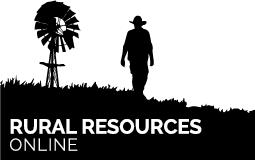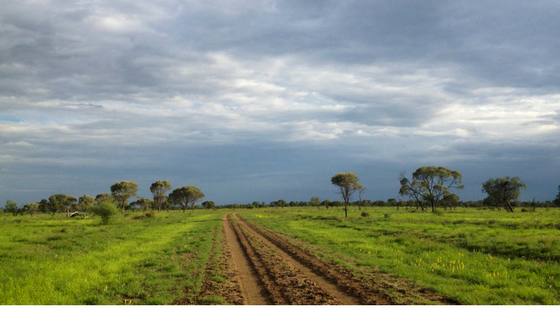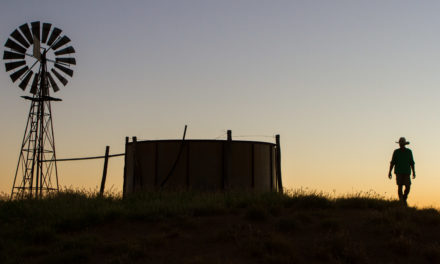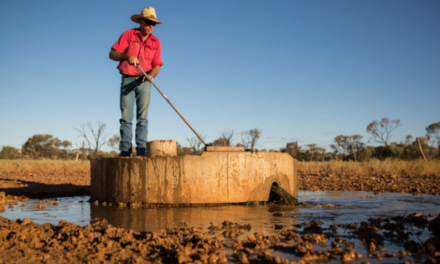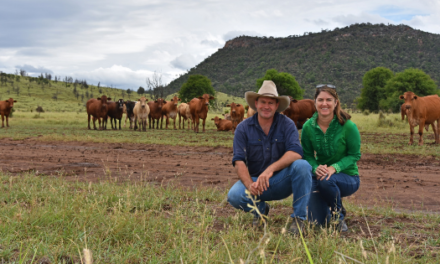There is a saying that is well known in the bush. It goes along the lines that the first generation of farmers in a family make the wealth, the second generation hold it and the third generation lose it.
Economists who have looked into this situation attribute the likelihood of this happening to the management style of the generation handing down the farm.
Explained simply, the first generation of the farming family learns their lessons on the go. They experience failures and how to make do with little income. They grow their wealth and assets through hard work and determination.
The second generation have the first generation to guide them. But they also have the benefit of the asset base of the first generation in which to operate the business.
The third generation do not have that direct connection to the first generation. They are often protected by the second generation. Their parents do not want them to experience many of the harsh realities of the previous generations.
This strategy however, often leads to the third generation not having the same knowledge base and skill set to handle life when things get tough. The third generation often ends up broke and the cycle is left to repeat itself.
This is a simplified explanation. But it is one that, upon reflection, suggests that there could be other ways to do things. By approaching succession planning for rural farming families differently the outcome could also be different.
Imagine a stronger overall financial position for everyone involved.
An open, inclusive analysis of the farm’s finances
The ultimate succession plan creates security for all family members. But what can the farming business afford?
The farming business has to be reviewed and analysed. Individuals need to identify their future goals. Only then can the family decide what is possible. Every family member should be working towards the financial targets of the business. A chain is only as strong as the weakest link.
Farmers have a spiritual connection to the land. To continue the legacy the business needs to be in a sound financial position.
It is generally accepted that siblings who are not allocated part of the family farm are compensated financially. The sibling(s) who carries on the farming business needs to ensure the business can still be viable. A large withdrawal of funds, reduction in assets or increased loan capacity must be planned and prepared for.
Building the team
Statistics show most farming families delay any formal succession planning. There is therefore a great opportunity for those that do to start early. By establishing the priorities of the family a plan for the business decisions can be made.
In business the wealthiest people do not find success on their own. Smart businessmen build a team and use their passion and energy to inspire others. Enthusiasm is critical to success in any field of endeavour. Enthusiasm is contagious.
The flipside to that position is that one of the most common causes of failure is a lack of harmonious relationships. Unhappy people are marked by misery. They are much less likely to strive ambitiously for the goals of the others in the relationship.
Collaborate, identify individual goals and create plans that make financial sense
A successful team that can work together will have a far greater combined output than if the individuals worked independently.
A team needs to know what goals they are working towards. More importantly they must know who is responsible for achieving any specific goals. Every individual will also have their own personal needs and financial goals. These should be discussed so that the levels of commitment to the farming legacy can identified.
An open discussion about the financial condition of the family farm is essential. Otherwise individual family members could be caught off-guard if their personal expectations do not align with the reality of the situation.
Everyone has different skills. There should be the opportunity for individuals to contribute their thoughts on how to best grow the business.
What if it’s identified that a farm is not in a strong enough financial position to meet all the goals of the individual family members? Little positive progress can be made until everyone is willing to talk openly and honestly.
It makes sense to identify the position the farm needs to be in financially before assets can be divided. Only then will there be more likelihood of a commitment from everyone involved to work towards achieving that position.
Sort out the simple stuff
The financial compensation a family member makes to the business can be calculated. There are Industry Awards and most people know what it would cost to get someone else to do their job.
A position description that lists the tasks that a family member does can be written. It is possible to document what a similar position would be paid and also to factor in the benefits of being fully funded (the business pays the living expenses). The business may not pay the full remuneration amount to the family member. It is however, an important business analysis to undertake. The true costs of carrying on an enterprise should be known.
Corporate businesses have policies and procedures in place. These ensure the rules of the company are known to all employees.
Why not sit down, discuss, decide and document the policies of the business with regards to holidays, working hours, houses, vehicles, expense accounts, lines of accountability and dispute resolution procedures?
It is far better to deal with an issue once and have clarity in the decision made. It is also easier to explain a documented rule to a new spouse. There is nothing worse than the feeling that the goal posts keep changing.
Think about the work-life balance
Families in business face unique challenges. It is often hard to separate the family from the business. Social occasions should be just that. The weekend BBQ should be about family. Especially if you have worked all day. A Monday morning meeting should be about business. Then the team can review the previous week’s task list and plan the coming week’s activities. It is good to assign an accountable person to a task.
Everyone should know what needs to be done. Everyone should also know who is responsible for getting each job done.
Think about the memories you want to give your children. Think about the work-life balance. Farmers now compete with higher income industries. The older generations may not see the need to write things down. The younger generations may see rules as giving structure and offering security.
Families should talk to each other. There is always room to compromise. It pays to seek out knowledge and use it. Farmers are not paid for what they know about agricultural production. They are paid for what they do with the knowledge.
This applies to other areas of the rural business. Knowledge can be learned and there are avenues to obtain this help. The choice to ignore any formal succession planning is not done in the best interest of the people involved. There are many experts who have the experience to help families achieve a positive outcome. Speak to the experts and take on board the advice that works for you.
Farmers like the Lawrie family in Central Queensland have a fantastic story. Their journey took seven years of tears, arguments, difficult conversations and a shared commitment.
The positive succession planning outcome they created benefited all the family members. They share their story to inspire others. The Lawries want people to know relationships can be a priority.
Spread the risk
No financial advisor recommends putting all your eggs in one basket and yet many farming families do just that. Not all the enterprises of the family business should be farming focused.
Wealth creation can occur off farm. Off-farm investments can start as small transactions, such as purchasing small parcels of good quality shares, and grow as the opportunity arises. It is much easier to distribute shares and other investments during an asset distribution process than farming land, as long as the original purchasing entity is correctly set up.
Not only are off-farm investments good options for asset distribution they also offer a buffer of income for the farming enterprise during tough years on the land.
It is never too early to benefit from compounding
It pays to start thinking about succession planning early. How many producers actually calculate what their retirement will cost? How many begin to make preparations early enough for the business to still be viable once the retiring generation is looked after?
Who plans a process whereby off-farm siblings can be gradually paid out their inheritance as opposed to their being a lump sum payment triggered by a death? Could the benefit of compounding create wealth for all siblings?
Small allocations of money invested regularly for a period of time ( eg $2000 a year for eight years) and then left to grow untouched for 40 years could turn $16,000 into $2.3million (based on interest of 12%). Calculations based on lower interest rates also give impressive results.
Rural business can be done better once the end goal is known. There are different ways to get an end objective than simply following the traditional path. For example children involved in a rural family business are eligible to be paid for their contribution. These tax deductible wages may be needed to assist with immediate expenses such as education costs.
However, any funds that can be isolated and invested for the future would benefit from compounding and make the future asset distributions a more harmonious and planned process.
If the end goals of succession planning are identified and documented then the farming business can set targets and plan strategies. It is possible to give the business and the farming family maximum opportunities to achieve their goals.
